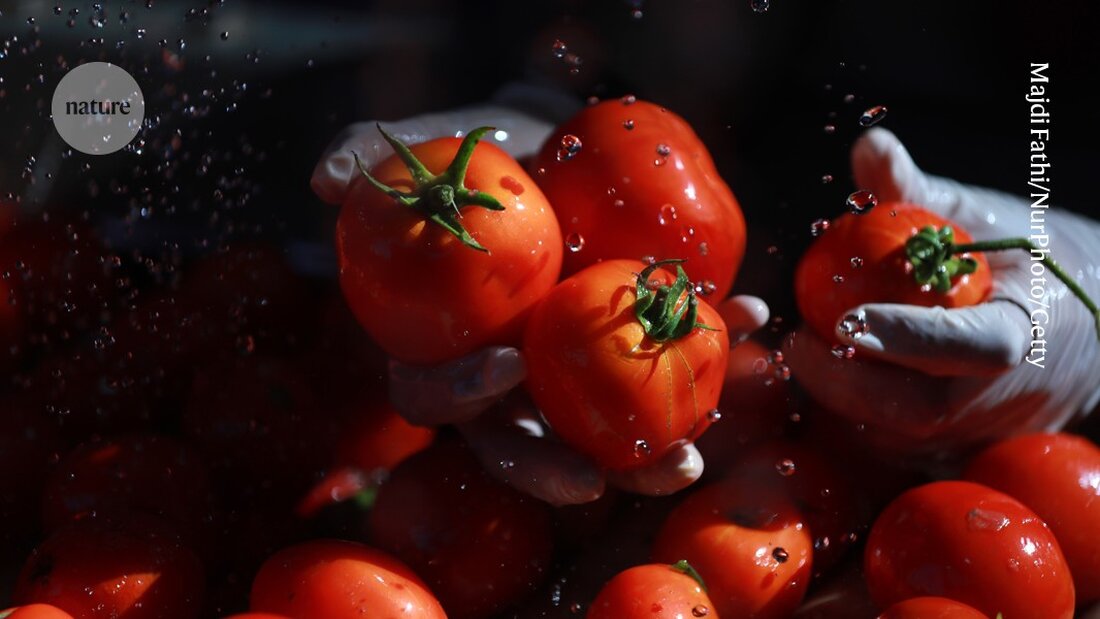CRISPR breeds a sweet giant tomato
Researchers have used CRISPR to create tomatoes that are up to 30% sweeter through gene editing. A breakthrough for taste!

CRISPR breeds a sweet giant tomato
Red tomatoes are a thing of the past: this Growing Sweeter Tomatoes is possible by editing only two genes of the fruit. Deleting these genes increased glucose and fructose levels in the processed fruit by up to 30% compared to mass-produced tomatoes, according to a study published today in the journal Nature 1 emerges.
The genetically modified tomatoes also weigh about the same as those currently on sale and the plants produce just as much fruit as the current varieties. These findings could not only help improve tomatoes worldwide, but are also an important step towards understanding how fruits produce and store sugar, say the authors.
Christophe Rothan, a fruit biologist at the French National Institute for Agricultural Research in Paris who was not involved in the study, calls it "great and important in its field and beyond." It opens up the “possibility of using the great genetic diversity that exists in wild species and has been partially lost in domesticated varieties to improve modern varieties,” he says.
Lots of possibilities
More than 186 million tons of tomatoes are produced worldwide every year, making the fruit one of the most valuable horticultural crops in the world. How other plants became Tomatoes domesticated, by selecting preferred characteristics – such as fruit size. Cultivated tomatoes are now up to 100 times larger than their wild ancestors, helping to increase the amount of fruit each plant produces.
But this large size comes at a price: As a rule, the larger the fruit, the lower the sugar content, which is responsible for the classic taste of home-grown tomatoes. In contrast, supermarket tomatoes taste "like water," says Jinzhe Zhang, co-author of the study and a plant geneticist at the Chinese Institute of Agricultural Sciences in Beijing. “They are tasteless.”
To address this problem, Zhang and his colleagues compared the genomes of cultivated tomato varieties (Solanum lycopersicum) with their sweeter wild relatives. They found the optimal location in two genes, each encoding a protein that breaks down enzymes responsible for sugar production. With the help of the CRISPR-Cas9 genetic technology The researchers disabled the two genes and found that the plants produced fruit that was far sweeter than that of a common variety.
The new tomato would be welcome not only because it would delight consumers, but also because it could save the time, energy and expense of producing other products such as tomato paste, which requires removing water from the fruit, said Ann Powell, a retired plant biochemist who previously worked at the University of California, Davis.
Because these genes are also found in a variety of plant species, the findings could be important for other products as well, as the mechanisms underlying sugar production in fruits have long puzzled scientists, Powell said.
-
Zhang, J. et al. Nature https://doi.org/10.1038/s41586-024-08186-2 (2024).

 Suche
Suche
 Mein Konto
Mein Konto
